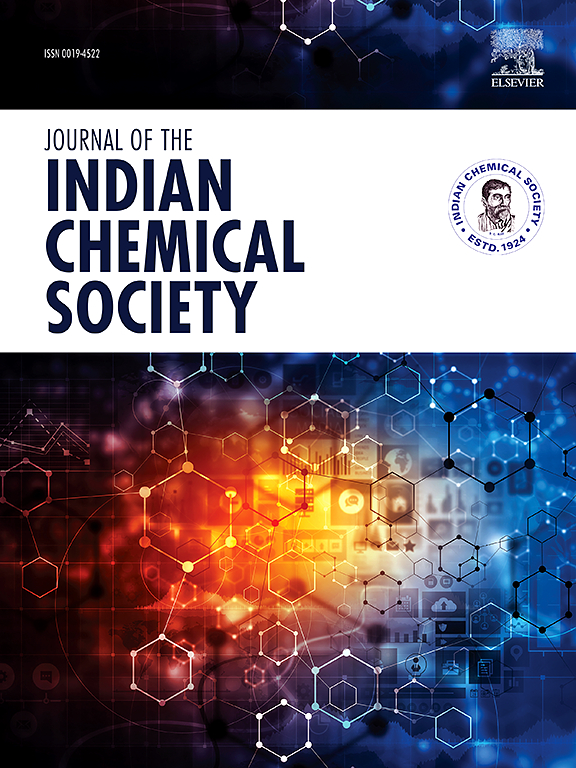响应面法与人工神经网络联合优化石油烃降解率预测模型
IF 3.2
4区 化学
Q2 CHEMISTRY, MULTIDISCIPLINARY
引用次数: 0
摘要
本研究旨在优化微生物降解石油烃的条件。以实验室培养的石油烃降解菌BM-W10为研究对象。通过16S rRNA基因测序和系统发育树构建,鉴定为芽孢杆菌。采用单因素试验设计,研究温度、pH、接种量和原油浓度对BM-W10菌株降解效率的影响。在此基础上,结合响应面法(RSM)和人工神经网络(ANN)建立了基于Box-Behnken实验设计的石油烃降解率预测模型。同时利用遗传算法(GA)对人工神经网络进行优化。结果表明,人工神经网络模型的预测结果更接近实际值,R2、平均绝对偏差(AAD)、均方根误差(RMSE)等指标均优于RSM模型,表明人工神经网络在非线性回归分析中具有更强的预测和拟合能力。ANN模型预测的最佳降解条件为:温度33.89℃,pH 6.99,接种量5.14%,原油浓度0.98%,在此条件下BM-W10菌株对石油烃的降解率可达62.58%。研究成果将有助于促进生物技术在解决环境污染中的应用。本文章由计算机程序翻译,如有差异,请以英文原文为准。

Combined optimization of petroleum hydrocarbon degradation rate prediction model using response surface methodology and artificial neural networks
This study aims to optimize the conditions for microbial degradation of petroleum hydrocarbons. The laboratory-cultivated petroleum hydrocarbon-degrading strain BM-W10 was used as the research object. Through 16S rRNA gene sequencing and phylogenetic tree construction, it was identified as Bacillus mycoides. To investigate the effects of temperature, pH, inoculation amount, and crude oil concentration on the degradation efficiency of the BM-W10 strain, a single-factor experimental design was employed. Furthermore, this study combined Response Surface Methodology (RSM) and Artificial Neural Networks (ANN) to establish a prediction model for petroleum hydrocarbon degradation rate based on a Box-Behnken experimental design. Simultaneously using Genetic Algorithm (GA) to optimize ANN. The results showed that the prediction results of the ANN model were closer to the actual values, with indicators such as R2, average absolute deviation (AAD), and root mean square error (RMSE) being superior to those of the RSM model, indicating that ANN exhibited stronger prediction and fitting capabilities in nonlinear regression analysis. The optimal degradation conditions predicted by the ANN model were: temperature 33.89 °C, pH 6.99, inoculation amount 5.14 %, and crude oil concentration 0.98 %, under which the degradation rate of petroleum hydrocarbons by the BM-W10 strain could reach 62.58 %. The research findings will contribute to the promotion of biotechnology for solving environmental pollution.
求助全文
通过发布文献求助,成功后即可免费获取论文全文。
去求助
来源期刊
CiteScore
3.50
自引率
7.70%
发文量
492
审稿时长
3-8 weeks
期刊介绍:
The Journal of the Indian Chemical Society publishes original, fundamental, theorical, experimental research work of highest quality in all areas of chemistry, biochemistry, medicinal chemistry, electrochemistry, agrochemistry, chemical engineering and technology, food chemistry, environmental chemistry, etc.

 求助内容:
求助内容: 应助结果提醒方式:
应助结果提醒方式:


